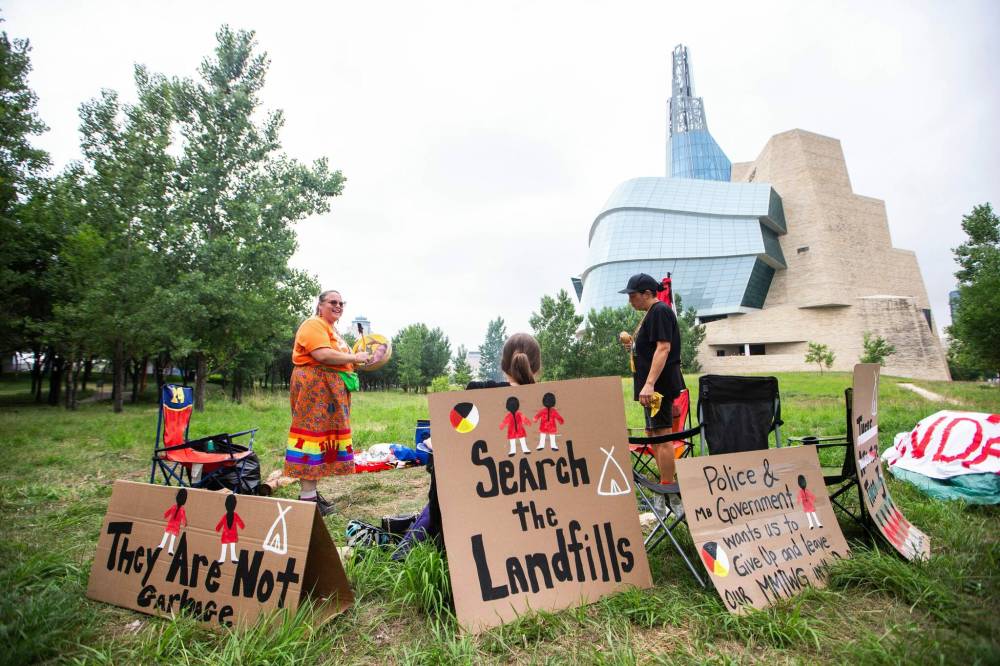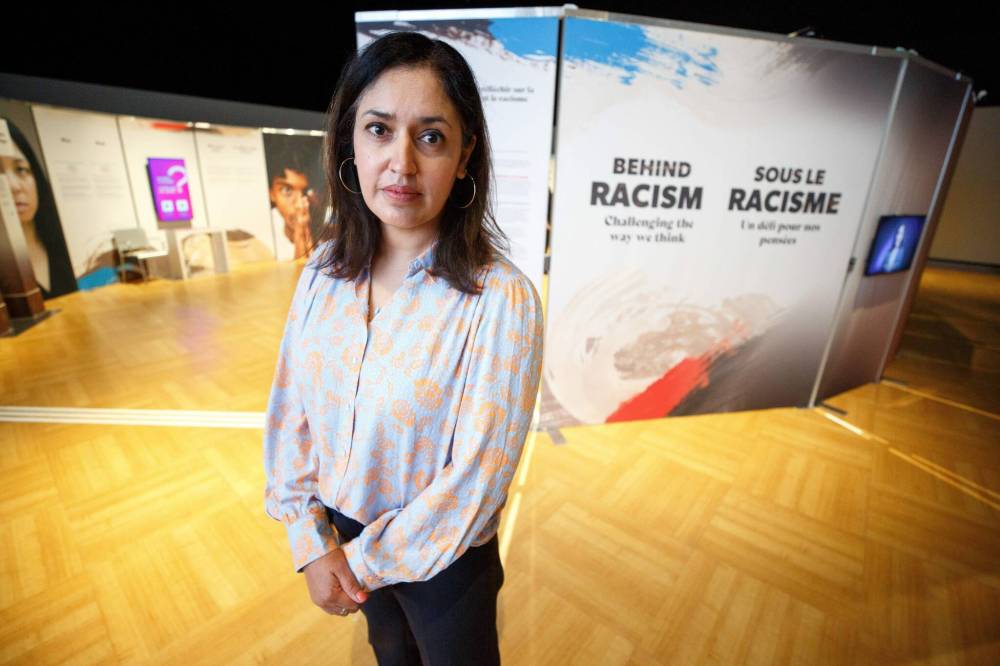Museum backs landfill search for women’s remains
Advertisement
Read this article for free:
or
Already have an account? Log in here »
To continue reading, please subscribe:
Monthly Digital Subscription
$0 for the first 4 weeks*
- Enjoy unlimited reading on winnipegfreepress.com
- Read the E-Edition, our digital replica newspaper
- Access News Break, our award-winning app
- Play interactive puzzles
*No charge for 4 weeks then price increases to the regular rate of $19.00 plus GST every four weeks. Offer available to new and qualified returning subscribers only. Cancel any time.
Monthly Digital Subscription
$4.75/week*
- Enjoy unlimited reading on winnipegfreepress.com
- Read the E-Edition, our digital replica newspaper
- Access News Break, our award-winning app
- Play interactive puzzles
*Billed as $19 plus GST every four weeks. Cancel any time.
To continue reading, please subscribe:
Add Free Press access to your Brandon Sun subscription for only an additional
$1 for the first 4 weeks*
*Your next subscription payment will increase by $1.00 and you will be charged $16.99 plus GST for four weeks. After four weeks, your payment will increase to $23.99 plus GST every four weeks.
Read unlimited articles for free today:
or
Already have an account? Log in here »
Hey there, time traveller!
This article was published 15/08/2023 (844 days ago), so information in it may no longer be current.
The Canadian Museum for Human Rights has endorsed calls to search for the remains of three slain Indigenous women who are believed to be buried in a private landfill near Winnipeg.
“It is a universal human value that the remains of the dead should be treated with dignity and their families accorded respect,” wrote Isha Khan, chief executive officer of the museum, in a letter dated Aug. 9.
“Much has been said about the financial and safety implications of a search, issues on which we defer to others. However, given our role, we must affirm the human rights imperative to act.”

MIKAELA MACKENZIE / WINNIPEG FREE PRESS FILES
The Canadian Museum for Human Rights has endorsed calls to search for the remains of three slain Indigenous women who are believed to be buried in a private landfill near Winnipeg.
On Tuesday, the Assembly of Manitoba Chiefs — the recipient of the two-page letter — touted the museum’s “unequivocal support” to bring home the remains of Marcedes Myran, Morgan Harris, and another suspected victim whose identity is unknown but Indigenous elders have named Buffalo Woman.
Family members and advocates for missing and murdered Indigenous women, girls and two-spirit people set-up Camp Marcedes outside the museum last month after city officials obtained an injunction to dismantle Camp Morgan, a blockade outside the Brady Road landfill south of Winnipeg.
Tensions have remained high since Premier Heather Stefanson announced on July 5 that her government would not support a costly search of Prairie Green landfill, a private landfill north of Winnipeg, due to worker safety concerns.
Grand Chief Cathy Merrick said the repercussions of inaction “cannot be underestimated.”
“Canada must address the systemic injustices stemming from colonization, racism, discrimination, and misogyny,” Merrick said in a news release issued Tuesday.

MIKE DEAL / WINNIPEG FREE PRESS FILES
“It is a universal human value that the remains of the dead should be treated with dignity and their families accorded respect,” wrote Isha Khan, chief executive officer of the Canadian Museum for Human Rights, in a letter dated Aug. 9.
In her letter, Khan noted Article 12 of the United Nations Declaration on the Rights of Indigenous Peoples states that First Nations, Métis and Inuit peoples have a right to access the remains of their family and community members.
maggie.macintosh@freepress.mb.ca

Maggie Macintosh
Education reporter
Maggie Macintosh reports on education for the Free Press. Originally from Hamilton, Ont., she first reported for the Free Press in 2017. Read more about Maggie.
Funding for the Free Press education reporter comes from the Government of Canada through the Local Journalism Initiative.
Every piece of reporting Maggie produces is reviewed by an editing team before it is posted online or published in print — part of the Free Press‘s tradition, since 1872, of producing reliable independent journalism. Read more about Free Press’s history and mandate, and learn how our newsroom operates.
Our newsroom depends on a growing audience of readers to power our journalism. If you are not a paid reader, please consider becoming a subscriber.
Our newsroom depends on its audience of readers to power our journalism. Thank you for your support.










